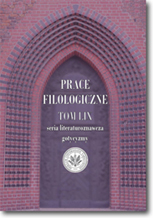Gotycyzm i śmiech. Groza, groteska i parodia u E.A. Poego
Gothicism and laughter. Horror, grotesque and parody in E.A. Poe’s short tales
Author(s): Edward KasperskiSubject(s): Language and Literature Studies
Published by: Wydział Polonistyki Uniwersytetu Warszawskiego
Keywords: gotycyzm; groza; groteska; parodia; Poe; Gothicism; terror; grotesque; parody; Poe
Summary/Abstract: There are long-standing critical opinions that Poe was a master of Gothic macabre tales implying the appreciation of extreme emotions, the thrills of fearfulness and awe inherent in the sublime, although he was, in fact, only one of the late heirs to the Gothic tradition. However, these opinions stood in contradiction to the fact that Poe was also an excellent humorist inspired by parody, grotesque, hoax and self-mockery. In contrast to the Gothic tradition, his macabre tales became often the hybrid mixture of comics and horror. Placing Poe’s arabesque and grotesque tales in the historical context, the article differentiates between three various literary strategies which define relationship of horror and comics: 1) the orthodox strategy oppressing and eliminating the laughter, 2) the strategy of the so called ‘satanic laughter’, which was practiced by Ch.R. Maturin in the novel Melmoth the Wanderer} (1820) and described by Ch. Baudelaire in his essay {De l'essence de rire, 3) the strategy of the laughter keeping distance from the horror and terror scenes and parodying them, e.g. in Poe’s tale {How to write a Blackwood article}. It is the thesis of the article that the third strategy was especially typical of E.A. Poe. In this respect American writer was a legal heir of the literary tradition represented by W. Shakespeare, F. Rabelais, M. Cervantes, J. Swift, Moliere, L. Sterne, Voltaire and D. Diderot.
Journal: Prace Filologiczne
- Issue Year: 2010
- Issue No: 59
- Page Range: 181-198
- Page Count: 18
- Language: Polish

